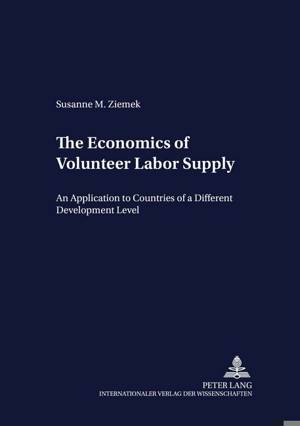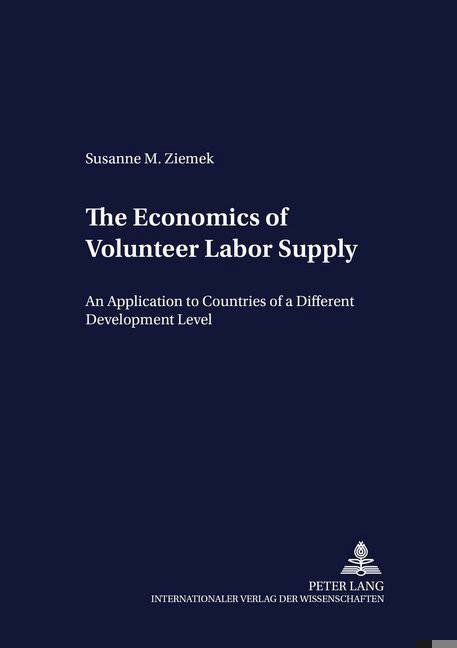
- Afhalen na 1 uur in een winkel met voorraad
- Gratis thuislevering in België vanaf € 30
- Ruim aanbod met 7 miljoen producten
- Afhalen na 1 uur in een winkel met voorraad
- Gratis thuislevering in België vanaf € 30
- Ruim aanbod met 7 miljoen producten
Zoeken
The Economics of Volunteer Labor Supply
An Application to Countries of a Different Development Level
Susanne Ziemek
€ 68,45
+ 136 punten
Omschrijving
Volunteerism represents a highly relevant institution for developed as well as developing countries. The potentials ascribed to voluntary work include its capacity to support public social welfare functions, build social capital, and mitigate unemployment problems. This study investigates four core aspects pertaining to volunteerism, and volunteer labor supply in particular, from an economic perspective. These encompass the analysis of the rise of the institution volunteerism, the estimation of the economic impact of voluntary labor contributions, the exploration of the underlying reasons for volunteering, and the identification of the determinants of volunteer behavior. These issues are addressed in a cross-country context, using survey data from four countries characterized by a different development level, namely Bangladesh, Ghana, Poland and South Korea. Particular emphasis is placed on evaluating the applicability of economic theories in explaining the phenomenon of volunteering.
Specificaties
Betrokkenen
- Auteur(s):
- Uitgeverij:
Inhoud
- Aantal bladzijden:
- 229
- Taal:
- Engels
- Reeks:
- Reeksnummer:
- nr. 38
Eigenschappen
- Productcode (EAN):
- 9783631513897
- Verschijningsdatum:
- 18/09/2003
- Uitvoering:
- Paperback
- Formaat:
- Trade paperback (VS)
- Afmetingen:
- 148 mm x 210 mm
- Gewicht:
- 329 g

Alleen bij Standaard Boekhandel
+ 136 punten op je klantenkaart van Standaard Boekhandel
Beoordelingen
We publiceren alleen reviews die voldoen aan de voorwaarden voor reviews. Bekijk onze voorwaarden voor reviews.











